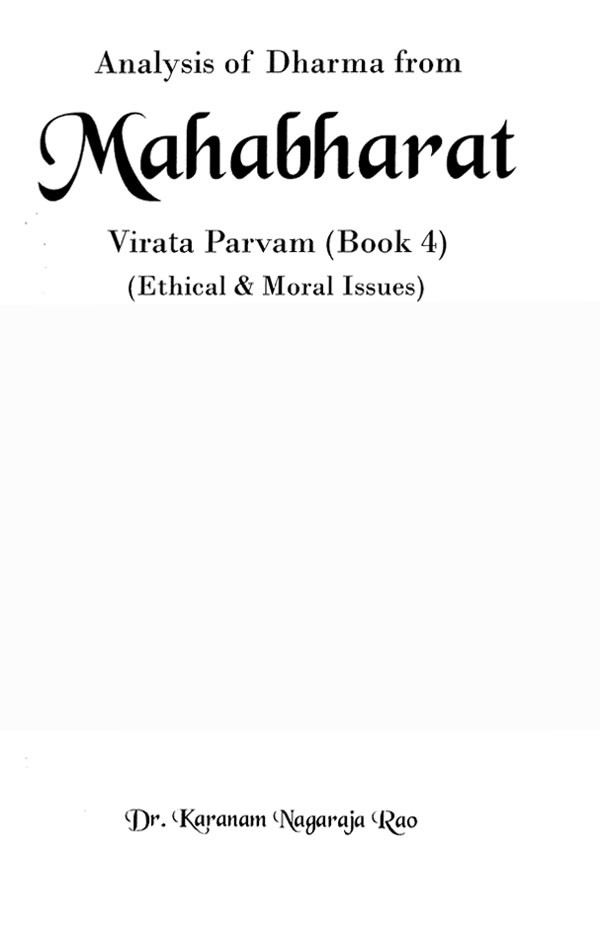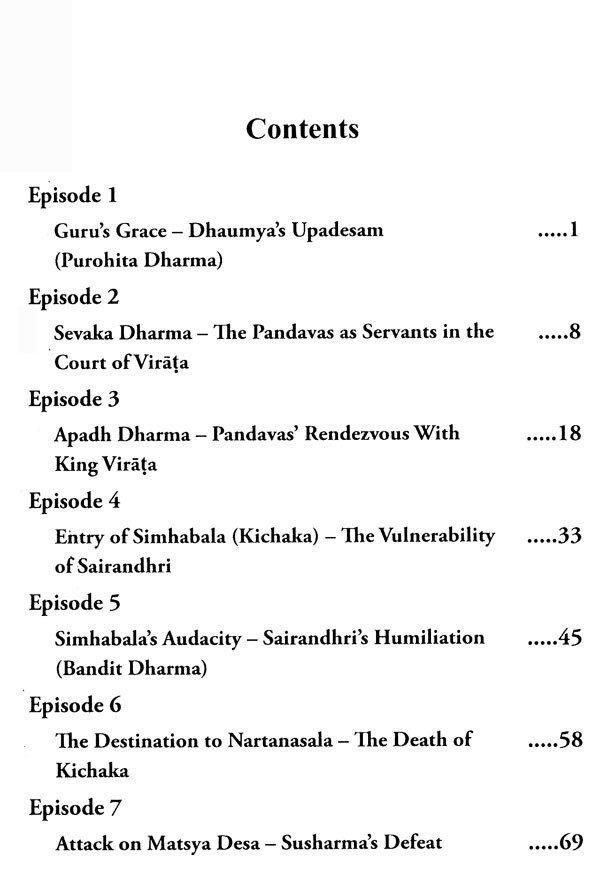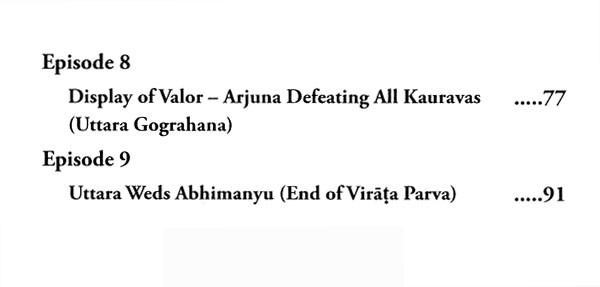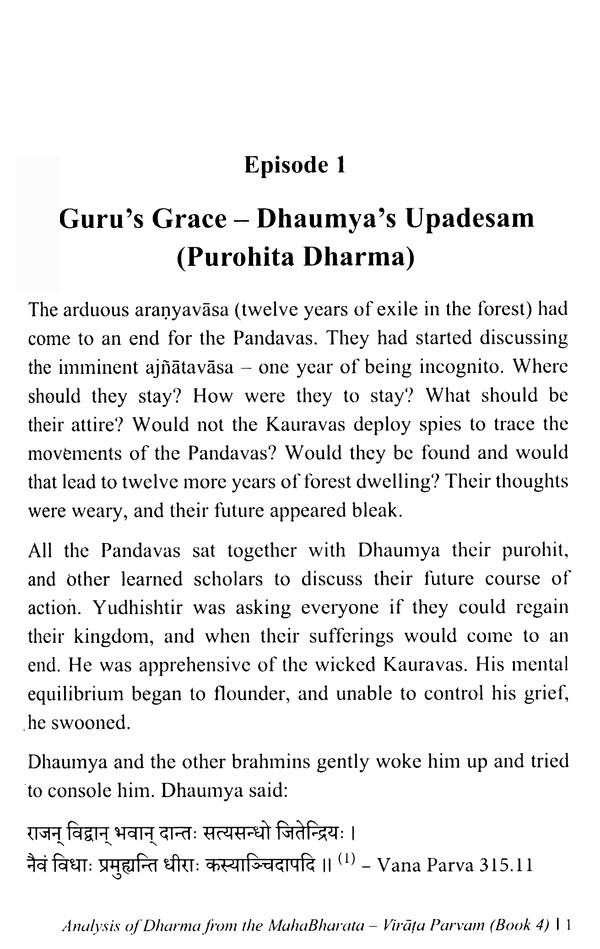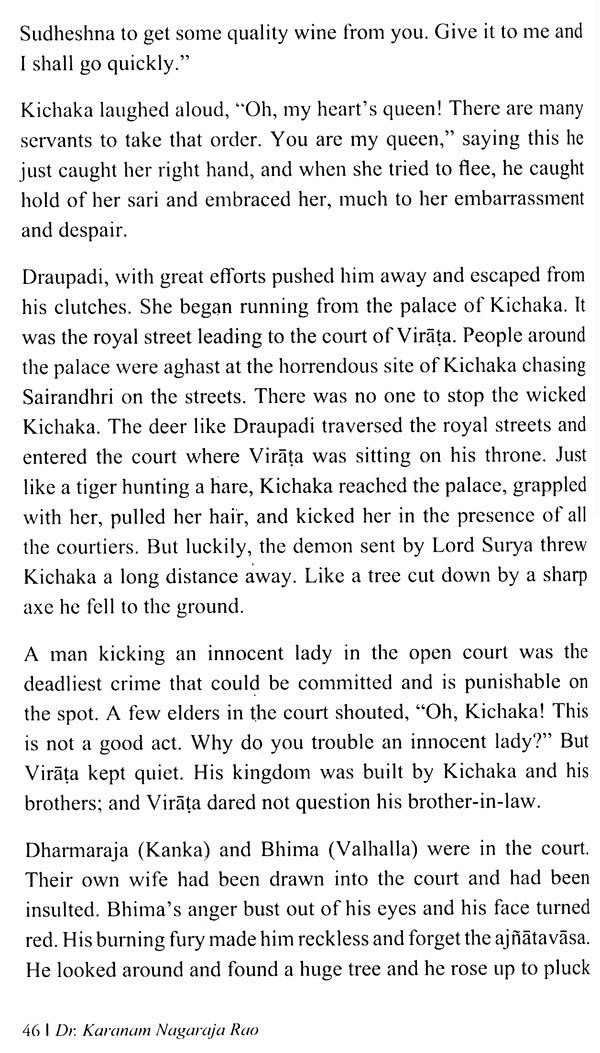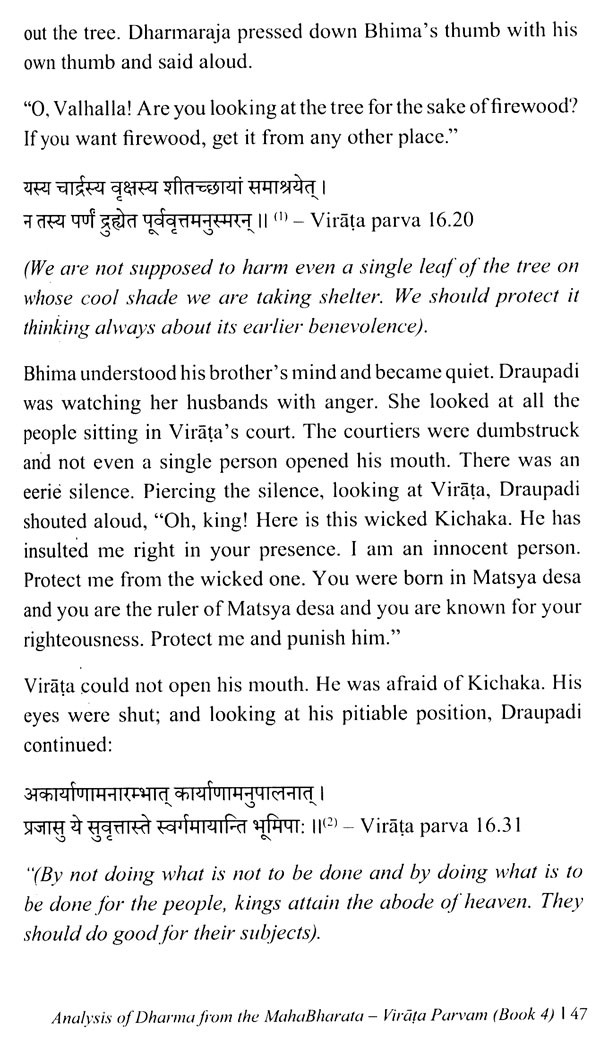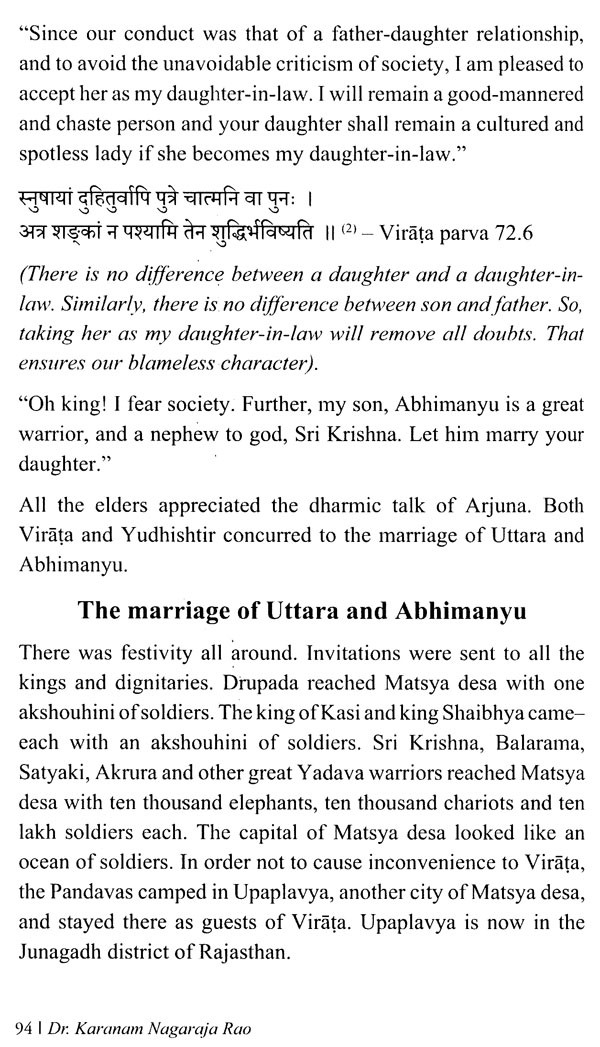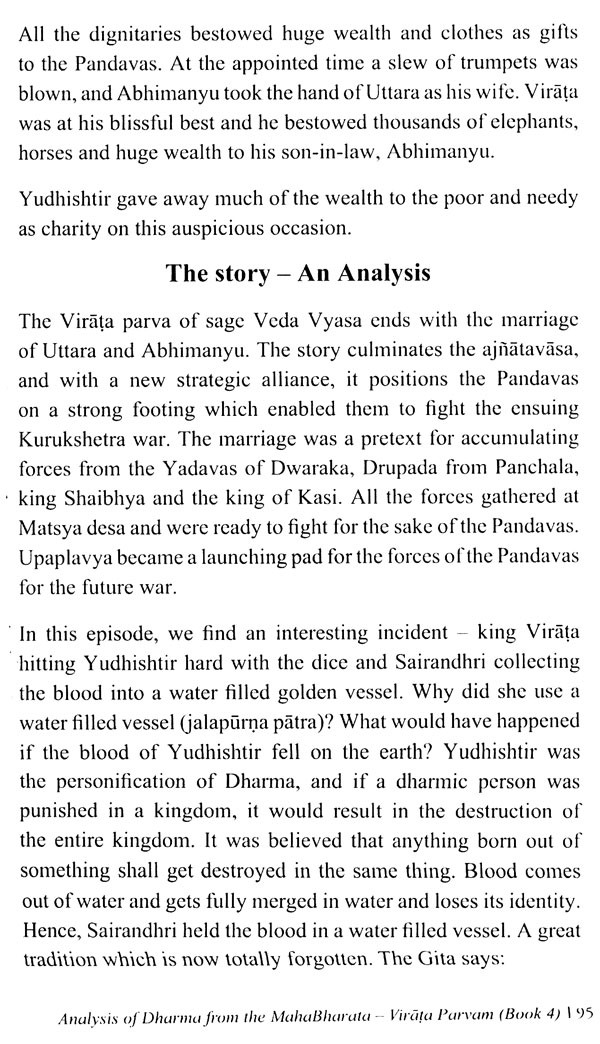
Analysis of Dharma from Mahabharata- Virata Parvam (Ethical & Moral Issues-Book 4)
Book Specification
| Item Code: | UBE964 |
| Author: | Karnam Nagaraja Rao |
| Publisher: | Story Mirror Infotech Pvt. Ltd. |
| Language: | English |
| Edition: | 2022 |
| ISBN: | 9789392661624 |
| Pages: | 108 |
| Cover: | PAPERBACK |
| Other Details | 8.50 X 5.50 inch |
| Weight | 130 gm |
Book Description
The book dispels certain popular myths which have been created through translations and films, and which are far from the original version of the Veda Vyasa. Since the ultimate objective of this book is to spread the message of Dharma, it will be sold as a gift pack to be distributed on all auspicious events.
He has published 60 articles in peer-reviewed journals, including European Case Centre and Sage Journals. He has two published books -Management Insights from Motivational Slokas and Business Ethics (Case lets), and they are available on Amazon.
His interests revolve around research in Itihasa literature, and his Mahabharata stories can be seen under his blog unclekatha.com. One can view his lectures both in English and Telugu on YouTube.
The book 'Mahabharata' has been translated into almost all known languages of the world, and one may ask why we need one more English translation now. I have gone through this book 'The Analysis of Dharma from the Mahabharatam Virata Parvam' by Prof Karanam Nagaraja Rao and find that this is, of course, a true translation of the fourth book of the Mahabharata of Veda Vyasa which has a few unique features. Unlike other English translations, this book has important Sanskrit slokas in Devanagari script as well as the transliterated version. This feature has given credence to the originality and authenticity of the translation. In most other translated works, conspicuously missing is the analysis of the story content. Prof Rao has, however, taken a great deal of pain to read the prominent commentaries of the Mahabharata by traditional scholars like Neelakanta Sastry, and analyzed each story from the perspective of Vyasa Hrudayam.
It is normal human tendency to fall from Dharma in time of adversity. The ajñātavāsa was one of the toughest periods since the Pandavas had to work as servants in the court of king Virata. The situational dynamics dictated that they remain docile and dormant in the face of admonitions. A man is measured by his attitude and his actions while facing difficulties. The book is a narration of how the Pandavas had spent their time without deviating from the path of Dharma.
The book focuses on how Dharma became the fulcrum around which all the activities and actions of the Pandavas revolved, and how they became models to be emulated in our daily lives.
**Contents and Sample Pages**
